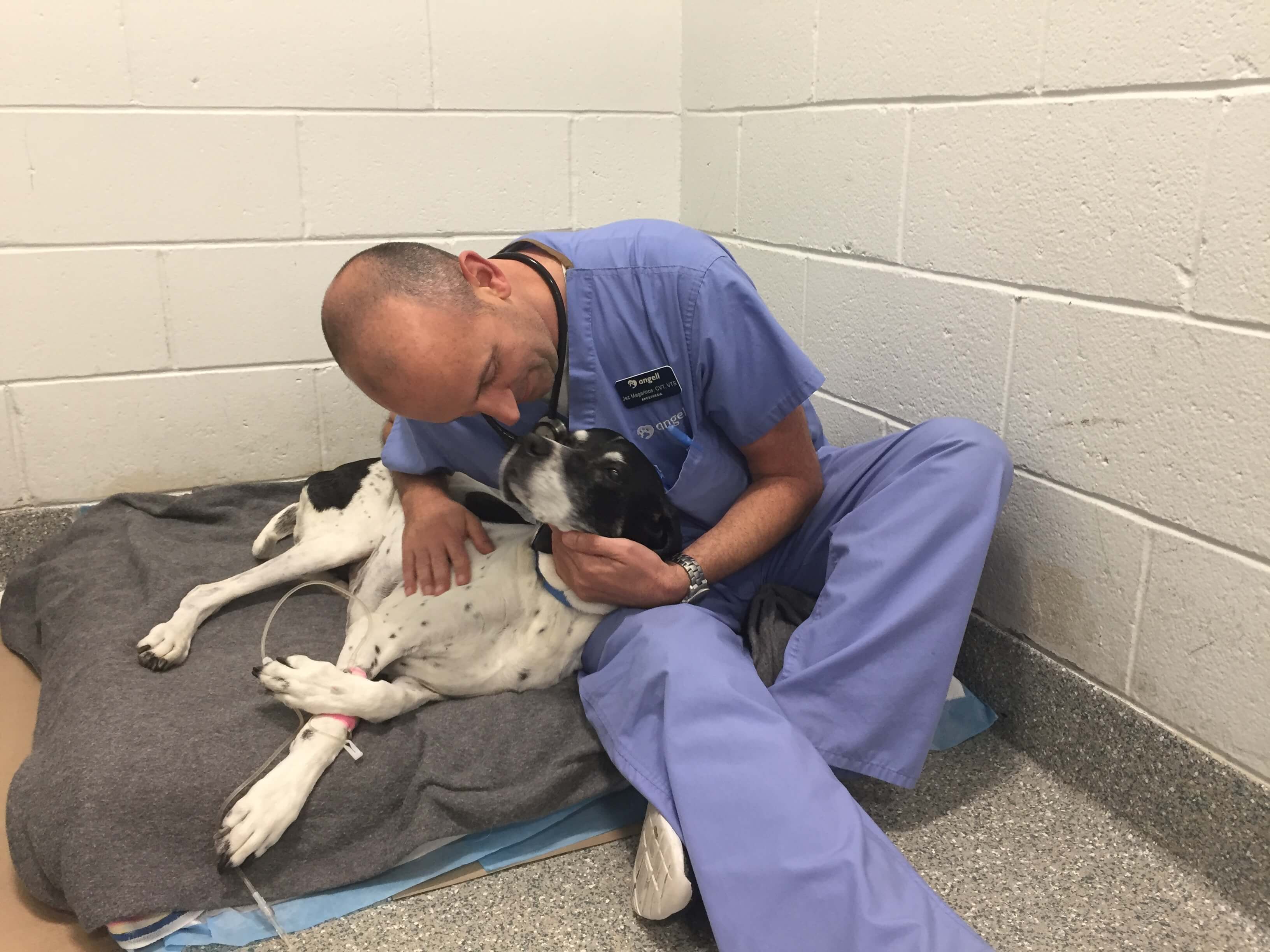-
Adopt
-
Veterinary Care
Services
Client Information
- What to Expect – Angell Boston
- Client Rights and Responsibilities
- Payments / Financial Assistance
- Pharmacy
- Client Policies
- Our Doctors
- Grief Support / Counseling
- Directions and Parking
- Helpful “How-to” Pet Care
Online Payments
Referrals
- Referral Forms/Contact
- Direct Connect
- Referring Veterinarian Portal
- Clinical Articles
- Partners in Care Newsletter
CE, Internships & Alumni Info
CE Seminar Schedule
Emergency: Boston
Emergency: Waltham
Poison Control Hotline
-
Programs & Resources
- Careers
-
Donate Now
Can love and comforting touch help an animal heal faster? We think so.
Extraordinary medical expertise and state-of-the-art technology are powerful tools for healing, but Angell’s Comfort Care Program follows the example of human hospitals’ neonatal units and uses the power of TLC to supplement medical technology.

Jez Magarinos, a certified veterinary technician and comfort care volunteer, spends a few quiet moments with a canine patient.
Angell’s new volunteer-driven Comfort Care program is the brainchild of Drs. Lisa Moses and Megan Whelan, who understand that while Angell’s 24/7 Emergency and Specialty Services can deliver increasingly sophisticated medical care for animal patients, many of them—particularly critically ill or injured animals—recover faster when trained volunteers spend time with them in between procedures.
“We are taking everything Angell Animal Medical Center is known for—compassionate and state-of-the-art medical care—and adding a human touch in the form of volunteers petting, helping to feed, or just spending time with animals who are understandably anxious about being in the hospital,” said Dr. Whelan.
Research indicates that comfort care makes a big difference for human babies—with faster weight gain, shorter hospital stays and improved social, emotional and physical development resulting from a well-executed program.
We anticipate that the Comfort Care program will result in similar benefits for animals, including the reduction of patient anxiety and pain sensation.
“Spending just a few moments administering ‘TLC’ to our animal patients is so rewarding,” said Jez Magarinos, a certified veterinary technician at Angell who has volunteered for the last three months. “I see the animals soften and relax just by offering my presence and my attention and it’s a reminder of just how impactful these simple measures can be.”
Angell Comfort Care in the News
Volunteer Driven
Volunteering for the Comfort Care program is limited to MSPCA-Angell employees, who undergo training in animal behavior before starting. Veterinarians support the program by identifying which patients will benefit from comfort and which may not. Volunteers spend anywhere from ten to 15 minutes with each animal before moving on to other patients.